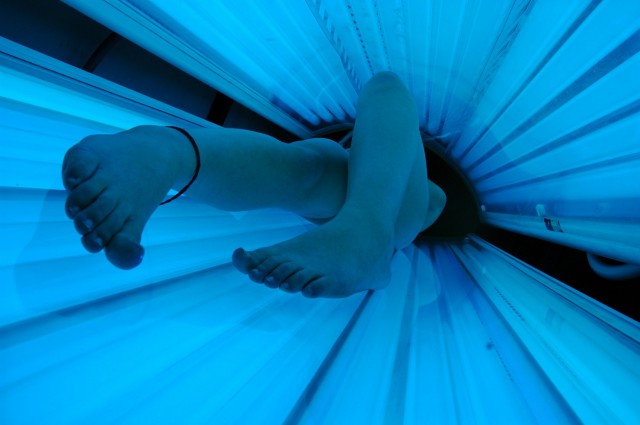The researchers said that despite what they called clear evidence of cancer risk, "indoor tanning remains popular in the United States."
Nationwide, more than 3.5 million cases of skin cancer are diagnosed each year, according to the study.
The survey was conducted in May, 2013. A female medical student who identified herself as a 17-year-old called a random sample of salons in California that advertised on Yellowpages.com, the majority of which were clustered in metropolitan areas. She told respondents that she wanted a base tan before summer, asked how frequently she could tan, whether there were any dangers, and if tanning was good for her.
Of the tanning salons she called, 77 percent — 260 out of 338 — told the female caller that she could not use their tanning beds.
But some said she could use their tanning beds with a doctor's note, and some told her she could use their facilities with parental consent. In addition, researchers said out of the 338 salons, 61 percent "made unlawful claims of specific health benefits," including vitamin D production, skin disease treatment, prevention of future sunburns, and remedies for depression.
"That was extremely troubling, because we have overwhelming evidence that tanning, especially at an early age, causes cancer, and it's killing people," Resneck said. "When you're young and invincible and there's people telling you tanning is safe, that information is going to be much more believable, even if it's not backed up by facts."
"There's a common misconception that tanning helps your health, and is better or the same as the sun," Resneck added. "So we thought this was critical to look at, knowing that the tanning industry is marketing to teenagers, and knowing that early tanning exposure causes cancer."
Researchers attributed the misinformation to salons workers not being familiar with the law -- or with lack of law enforcement.
Resneck said despite lack of education and enforcement, that the study's results were a big leap forward in an industry that doesn't have a lot of good data and that hasn't accurately tracked enforcement of laws that prevent or restrict tanning among minors.
California lawmakers were the first to pass an outright ban on minors using indoor ultraviolet tanning salons in 2011. Since, California passed its ban on minors using indoor tanning beds, eight other states have passed similar laws. Statewide, salons that violate the law are required to pay a civil violation fine of $2,500 a day.
